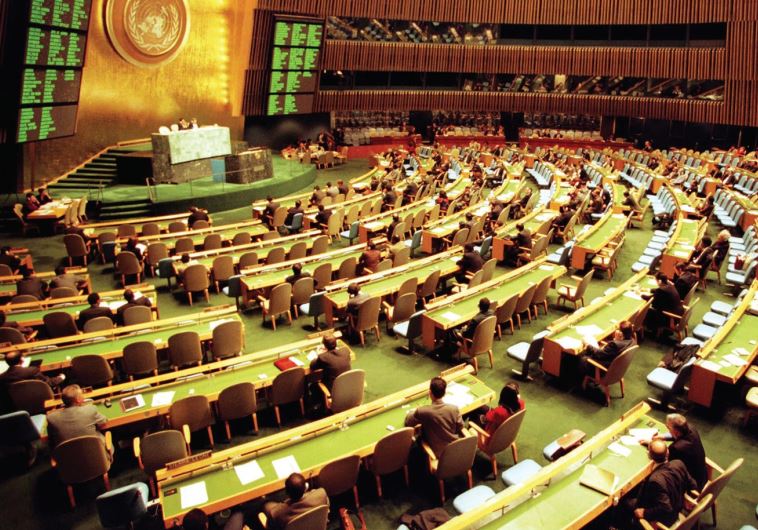Presidential candidates should pledge to end the UN’s onslaught against Israel
The AIFL expresses concern that the UN’s disproportionate condemnation and outright discrimination against Israel often reflects latent anti-Semitism.
 THE UN General Assembly in the 1990s, when the ‘Zionism is Racism’ resolution was repealed.
THE UN General Assembly in the 1990s, when the ‘Zionism is Racism’ resolution was repealed.